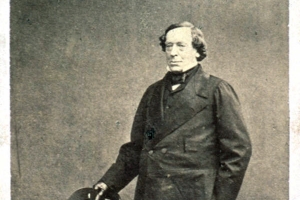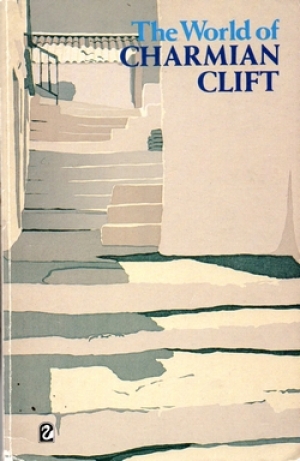Essay
I’m not keen to be at this dinner party at Carol’s. I find her hard to take sometimes, with her endless stories about her life in Maningrida. Her husband is away. Instead, there’s Graham, who’s been here nearly ten years; Laurie, who has visited the community from time to time since the 1970s; and Lisa, who is a few years older than me and who runs the art c ...
You know you are getting old when one of your students, genuine in her puzzlement, says to you, ‘Who was Bob Santamaria?’ Santamaria? The most famous lay Catholic since Ned Kelly! The man whose machine split Australian Catholicism for a generation; whose politics kept Labor from office for two decades; whose disciples and friends still move through the corridors of power in church and state! To meet someone to whom Santamaria is an unfamiliar name is to know that you too will soon be history.
... (read more)If we look back into past times, we find innumerable names of authors once in high reputation, read perhaps by the beautiful, quoted by the witty, and commented upon by the grave; but of whom we now know only that they once existed.
Samuel Johnson
Sometimes the situation in Australia, with respect to writers, resembles that in early eighteenth-century England.
... (read more)I grew up in a once-upon-a-time land when milk and loaves appeared at the door to the jingle of bells and the clopping of hooves, when housewives were wistful Cinderellas in sacking aprons and hair permanently rollered for the ball, when men wore hats, and lifted them to the funerals of strangers passing in the street. That time – the forties, the early fifties – has been mythologised into a Camelot of Anglo-Celtic virtue, or a dark age of tribalism and British cooking. In my recollection, of course, it was neither, but simply the way things were. It is disconcerting to find one’s private past, one’s little collection of ordinary memories, become a matter of ideological dispute, and to discover, after peaceful decades spent reading historical documents, that you have become a historical document yourself.
... (read more)National Library Australian Voices Essay | 'Counting Myself' by Graham Little
There is one kind of writing that, unfailingly, moments after I start it, stiffens my wrist till it’s too painful to go on. It must be genetic because my daughter has the same condition. Diary-writing, filling up a Daybook or whatever. Consequently, I keep no journal or notebook of any kind. I did once, in a red exercise book, for a month, on the Strathnaver from Tilbury in 1954. I’ve read it. Embarrassing! And just now I’ve been prospecting the diaries my father gave me as Christmas presents, one for 1953, the other for 1954. The later one opens in Hampstead and closes in Black Rock, swearing on the last page (to whom, I wonder, Her Majesty herself?) that Rule Britannia will never, as far as this lad is concerned, tum into Waltzing Matilda. Oh dear!
... (read more)One is tempted to view the proliferation of the small Australian literary magazine as a postmodern development. Few these days will turn a hair at the use of that term, previously confined to the domain of abstruse theories about culture and aesthetics. When the Australian Broadcasting Commission bandies about a word on the grounds that it has significance for programming strategies (according to the thrust of recent conferences, we may prepare ourselves for a new postmodern style ABC arts radio), then the word has acquired respectable currency. Postmodernism, according to the rule of thumb I shall engage here, simply emphasises the destabilisation of distinctions between ‘high’ and ‘low’ culture, and the fragmentation of modernism’s homogeneous cultural narrative into a multiplicity of independent discourses. Cultural richness becomes evaluated in terms of diversity.
... (read more)We are having a Sunday picnic. It is not a cosmopolitan affair, with pâté and brie and champagne, nor even a dinky-di one, with sausages and sauce and tinnies. Simply an impromptu, let’s-get-out-of-thehouse event: a jar of peanut butter, a jar of honey, a tub of marge, half a loaf of Friday’s bread and a packet of jubes.
... (read more)I was supercilious towards Italy and Italians before seeing Italian films and reading Curzio Malaparte’s novels. Malaparte foiled the superciliousness while the films’ backgrounds, something as simple as sunlight in the squares, intrigued. Previously France had provided an alternative to Anglo-Saxon culture. An Irish heritage set me askew to Anglo-Saxondom, but it did not give me another language as English had supplanted Gaelic. In any case, Ireland was the past and a somewhat mythic past at that. My parents were attached to Ireland but even their parents had been born in Australia. Indeed there had been no direct contact with Ireland since the mid-nineteenth century; it was the past you could not reach but only romanticise. Being of Irish origin meant being Catholic outside the Anglo-Protestant Pale.
... (read more)The notion of what it means to be different, and the question of how we know we are different, invites us to consider statistical method and its implications for our society, for only in the context of what is normal can an individual be assessed as different. Mathematically, it would appear that the relationship between an individual and a society composed of individuals is by no means straightforward, a subtlety increasingly lost on those citizens who, armed with degrees in the social sciences, emerge from our tertiary institutions to study, rehabilitate, and edify us.
... (read more)Jill Kitson reviews 'The World of Charmian Clift' by Charmian Clift
The World of Charmian Clift is a selection of the weekly columns she wrote for the Sydney Morning Herald’s women’s pages. They date from 1964, the year that she, George Johnston, and their children returned from Greece, up to her tragic suicide in 1969. Clift herself selected most of the essays for the book, which was first published posthumously in 1970, not long before George Johnston’s death from tuberculosis.
... (read more)



